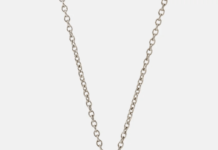Fashion technology, often referred to as “fashtech,” is revolutionizing the industry by merging innovation with style, paving the way for a more sustainable, inclusive, and technologically advanced future. From smart fabrics and wearable tech to virtual fashion experiences and AI-driven design tools, these innovations are reshaping every aspect of the fashion ecosystem.
One of the most transformative innovations in fashion technology is the development of smart textiles and fabrics. These materials integrate technology seamlessly into clothing, offering functionalities that go beyond mere aesthetics. For example, advancements in textile engineering have led to the creation of fabrics that can monitor vital signs, regulate body temperature, or even change color based on environmental factors or user preferences. This intersection of fashion and technology not only enhances comfort and functionality but also opens up new possibilities for personalized and adaptive clothing solutions.
Wearable technology is another area where fashion and innovation converge to enhance the consumer experience. Wearables encompass a wide range of devices, from smartwatches and fitness trackers to augmented reality glasses and smart jewelry. These devices not only track health metrics and provide real-time data but also serve as fashion statements, blurring the boundaries between technology and personal style. For instance, luxury brands are increasingly incorporating wearable tech into their collections, offering consumers stylish accessories that also offer practical functionalities.
Virtual and augmented reality (VR/AR) are transforming the way consumers interact with fashion, enabling immersive shopping experiences and virtual try-ons. VR allows shoppers to explore virtual stores, interact with digital garments, and visualize how clothing will fit and look before making a purchase. AR, on the other hand, overlays digital content onto the physical world, allowing users to try on virtual clothing through their smartphones or tablets. These technologies not only enhance convenience and engagement but also reduce the need for physical retail space and minimize returns, contributing to a more sustainable fashion industry.
Artificial intelligence (AI) is revolutionizing fashion design and production processes, making them more efficient, sustainable, and responsive to consumer demand. AI-powered algorithms analyze vast amounts of data to predict trends, optimize supply chains, and personalize shopping experiences. For example, fashion brands use AI to forecast demand, minimize overproduction, and tailor recommendations based on individual preferences and purchasing behaviors. AI-driven design tools also assist designers in creating innovative patterns, textures, and styles, streamlining the creative process and pushing the boundaries of what’s possible in fashion.
Blockchain technology is gaining traction in the fashion industry as a tool for enhancing transparency, traceability, and sustainability. Blockchain enables secure, decentralized record-keeping of transactions and product information, making it easier to verify the authenticity and provenance of garments. This transparency extends to ethical practices, such as fair labor conditions and sustainable sourcing, empowering consumers to make informed choices and hold brands accountable. Additionally, blockchain-based platforms enable designers to protect intellectual property rights and combat counterfeiting, ensuring that creativity and innovation are safeguarded within the industry.
Sustainability is a driving force behind many fashion technology innovations, as the industry seeks to reduce its environmental footprint and promote ethical practices. For example, advancements in textile recycling technologies are enabling the circular economy by transforming old garments and textiles into new fabrics and materials. Innovations in dyeing processes, such as digital and waterless dyeing techniques, minimize water usage and chemical waste, further contributing to a more sustainable supply chain. Additionally, 3D printing technology is revolutionizing fashion production by allowing designers to create intricate designs with minimal waste and on-demand manufacturing capabilities.
In conclusion, fashion technology is reshaping the industry by integrating innovation, sustainability, and consumer-centricity into every aspect of the fashion ecosystem. From smart textiles and wearable tech to AI-driven design tools and blockchain-enabled transparency, these innovations are not only enhancing the way we create, consume, and experience fashion but also paving the way for a more interconnected and sustainable future. As technology continues to evolve, its role in fashion will undoubtedly expand, driving further advancements and transforming the industry into a beacon of creativity, inclusivity, and responsibility.
















